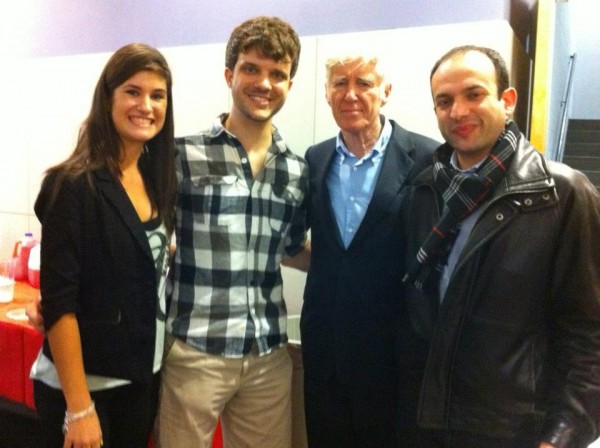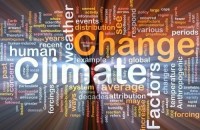December 11, 2012
UNIVERSITY OF MARYLAND KUDOS
On November 12, 2012, Lester Brown gave the inaugural talk of a new environmental lecture series at the University of Maryland, the institution where he earned a Master’s degree in agricultural economics in 1959. He was introduced by Herman Daly, professor emeritus and former senior economist at the World Bank, widely known as the founding father of ecological economics.
 Dr. Daly noted in his heartfelt introduction that he thought of Lester Brown as an older brother, someone to be followed (“not like on Twitter”) in the field of economics. In the late 1950s and early 1960s when academic economics were entrenched in a “sterile formalism,”he said that Lester stuck with “substance,” focusing on the importance of things that were real, like soil, water, and food.
Dr. Daly noted in his heartfelt introduction that he thought of Lester Brown as an older brother, someone to be followed (“not like on Twitter”) in the field of economics. In the late 1950s and early 1960s when academic economics were entrenched in a “sterile formalism,”he said that Lester stuck with “substance,” focusing on the importance of things that were real, like soil, water, and food.
Throughout his productive career Daly had the opportunity to visit ministries of the environment around the world, where, he recounted, he would almost always see some Worldwatch and Lester Brown books on the shelves, generally looking well-used. In true form for an economist, Daly couldn’t resist measuring Lester's efficiency, which he calculated as a ratio of valuable output over costly input. With the output evident in citations “all over the place,” 50 books, 25 honorary degrees, and a number of apprentices mentored, divided by monetary input (looking at Lester’s institutional budgets, it’s “almost like dividing by zero!”) He then compared Lester’s near infinite efficiency to that of the World Bank: a ratio of minor accomplishments to a massive budget, not a promising figure.
Daly concluded his remarks with a fantasy vision of a statue of Lester on the University of Maryland campus. To bookend the existing statue of alumnus Jim Henson  conversing with Kermit the Frog, he envisioned the inscription reading “It’s not easy being green, especially for an economist.”
conversing with Kermit the Frog, he envisioned the inscription reading “It’s not easy being green, especially for an economist.”
Thank you Dr. Daly, for such a thoughtful and kind introduction, and—most of all—for your tireless work in greening economics, institutions, and the world.
More than 200 people attended the standing-room only lecture. In his remarks, Lester spoke about his most recent book, Full Planet, Empty Plates: The New Geopolitics of Food Scarcity. He warned of the tightening margin between food production and fast-growing demand, noting that the major threats to security in the world today are not armed aggression or advanced military technologies, but climate change, population growth, food shortages, rising food prices, and spreading instability. He concluded by asking people to pick an issue that they felt strongly about—from the movement to close coal-fired power plants, to banning bottled water on college campuses—and get to work. “Saving civilization is not a spectator sport!”
Here’s hoping that more people take that message to heart.
Best,
Janet Larsen
Herman Daly’s article, “From a Failed Growth Economy to a Steady State Economy,” can be read in Solutions Journal.